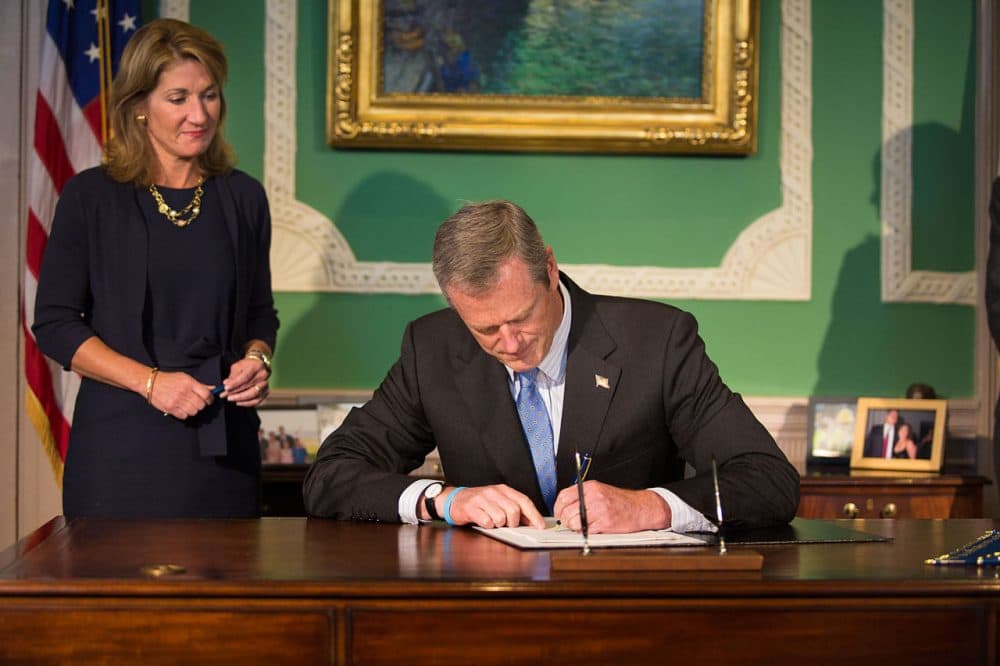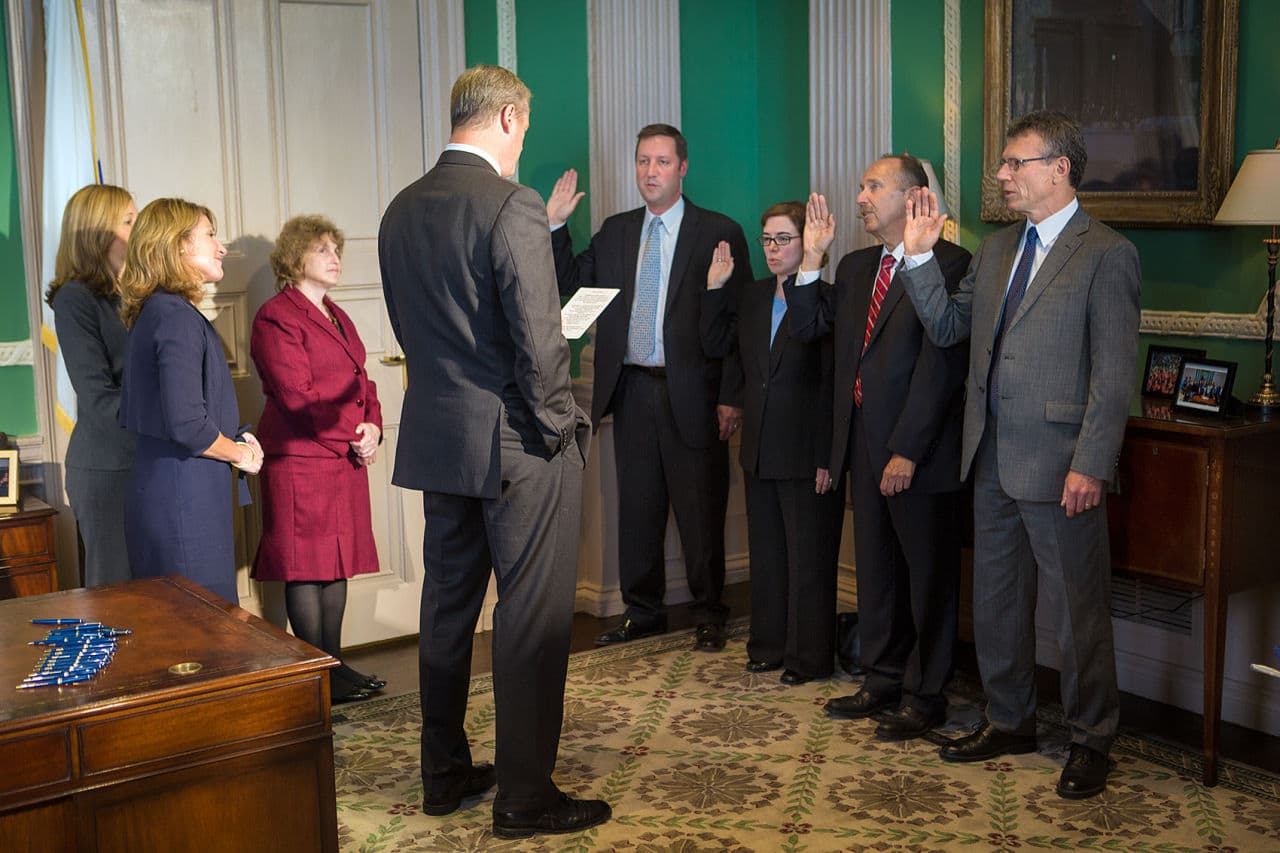Advertisement
Gov. Baker Signs $38.1B Budget, Names MBTA Control Board

Republican Gov. Charlie Baker signed what he called a fiscally responsible $38.1 billion state budget into law Friday, while naming members of a new board that will take temporary control of the Boston-area transit system in the wake of last winter's crippling breakdowns.
He used his line-item veto power to trim $162 million from the spending plan approved by the Legislature for the fiscal year that started July 1.
The vetoes drew immediate criticism from a top Senate Democrat.
The budget closes a projected deficit "without raising taxes and making key investments to create more jobs, improve our schools and build stronger communities for the commonwealth from one end to the other," Baker told reporters outside his office.
The spending plan creates a five-member financial control board to oversee the Massachusetts Bay Transportation Authority for three years. Baker proposed the control board after record-setting snow exposed managerial weaknesses and the system's antiquated equipment.

Baker named Joseph Aiello, an executive at Meridiam, a company that specializes in public infrastructure investment, to chair the board.
The board is slated to hold its first meeting Tuesday.
The budget is the first to be signed by Baker, who took office in January with a promise to address what he called a "spending problem" in state government. Baker said he inherited both a $760 million budget deficit and a projected $1.8 billion shortfall in the current fiscal year.
The spending plan calls for doubling the earned income tax credit for low-income working families over three years.
Baker and Democratic legislative leaders announced a last-minute compromise Friday that will prevent the total elimination of a business tax deduction to pay for expanding the earned income tax credit. Under the agreement, the business deduction will be delayed for five years but in the future, companies will be given 30 years, instead of seven, to claim it.
The Legislature will have an opportunity to override the vetoes, which Baker said include $38 million in earmarks.
In a statement, Senate President Stan Rosenberg expressed "serious concerns" with many of the vetoes, including reductions in education programs from early childhood to higher education. He said lawmakers would take a hard look at the cuts.
University of Massachusetts President Martin Meehan said he was disappointed that Baker reduced funding for the five-campus system by $5 million.
In a letter to lawmakers, Baker also pointed to several budget items that will require "corrective action," in future months, including several underfunded programs such as one that provides lawyers to indigent defendants.
Baker agreed to a $10,000 annual raise for the Governor's Council, an eight-member elected body that votes on judicial nominations. He said councilors had not received a substantial increase since 2000.
In addition to forming the control board, lawmakers agreed to give the MBTA a temporary exemption from the restraints of the state's anti-privatization rules, commonly known as the Pacheco Law. Baker has said he does not plan to privatize the T but money could be saved by outsourcing some functions, such as late-night service that is popular among young people.
"We are putting all the pieces in place that we believe are necessary to ensure that the commute is much better next winter than it was last winter," said Stephanie Pollack, state secretary of transportation.
The governor did not get all the changes he sought, as lawmakers rejected giving the control board more flexibility to raise MBTA fares above the current 5 percent cap or more power to override binding arbitration with unions.
In addition to Aiello, board members include (read their bios here):
-- Lisa Calise, former chief financial officer for the city of Boston;
-- Steve Poftak, executive director of the Rappaport Institute at Harvard University's Kennedy School of Government;
-- Monica Tibbits-Nutt, executive director of the 128 Business Council;
-- and Brian Lang, president of the Boston hotel workers union.
Associated Press writer Steve LeBlanc contributed to this story.
This article was originally published on July 17, 2015.